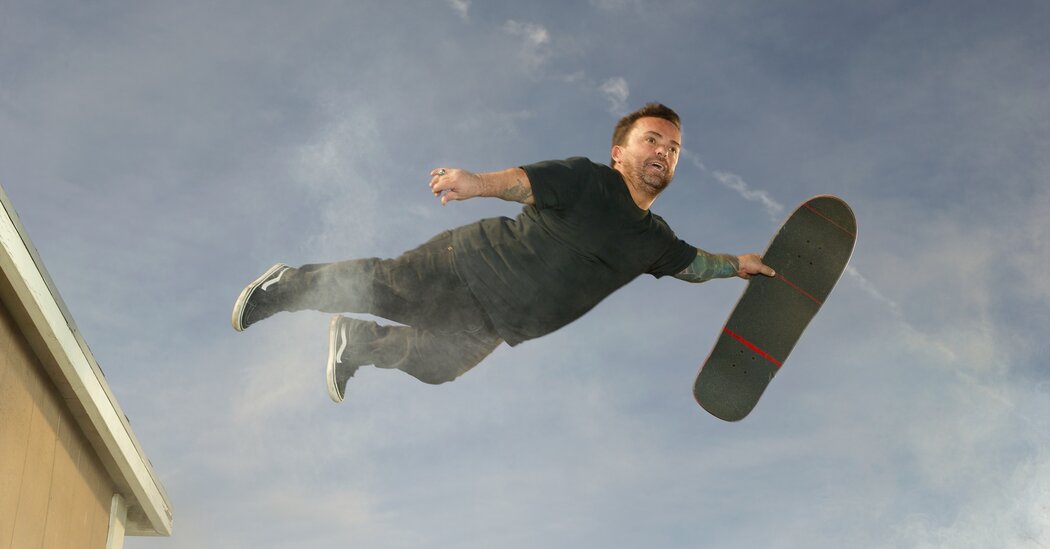
George had known somebody with dwarfism, an old high school classmate named Kevin. One day when Jason was an infant, George happened to spot Kevin at a bus stop. George asked if he might come over for dinner, to speak with George and his wife “about what to expect.” Kevin agreed, and he and George have kept in touch for the rest of Jason’s life. He advised, as best George can recall, that Jason would turn out just fine. As Jason grew up, George admired his son’s natural ease with others. “He was never afraid to be around everybody,” he said. “He’s got a beautiful smile.”
On a winter morning in California, sitting in a beachfront park between two faux-lighthouse edifices, Acuña recalled how, when he was a child, his mother learned of an annual conference held by Little People of America, a support organization for people with dwarfism. She thought he might enjoy the opportunity to meet other kids like him. The hypothesis proved incorrect.
“I came back and I go, ‘Mom, I don’t want to go to these things anymore,’” he said. “I’m like: ‘That’s not what my life’s about. I have friends.’”
“I don’t think anybody in the world needs to like — ” Acuña noticed a bald man jogging on the beach. “ ‘Well, I’m a bald guy so I need to go hang out with bald people.’ No, he doesn’t care. He’s a dude. He’s a jogger, he wants to hang out with more joggers. Skateboarder, hang out with skateboarders.”
Acuña’s achondroplasia, coupled with his inclination to make himself ultravisible, helped him stand out as a skater. An inveterate disrupter in class, he always bloomed under attention. Earning notice for being famous, he said, “felt just the same as looked at for being little. So that feeling never changed.” He told me he began being sponsored by local skate shops when he was 14. At age 19, he appeared in the fifth issue of Big Brother in a feature that spotlit him for, he said, “being a little-person skateboarder” who was “very talente — or talented, you know. I don’t want to say ‘very talented.’” The article, which also contained an interview with Pancho Moler, another skateboarder with dwarfism, was titled “Wee Men.”
Acuña’s “Wee Man” nickname was coined by a warehouse employee at World Industries, the skateboard company that produced Big Brother. Teenage Acuña and his friends were frequent visitors to the company’s factory and warehouse space for reasons obvious to skateboarders, but which are unable to be logically articulated to the wider world. Every time Acuña showed up, he said, the employee — whose brother owned World Industries — “would yell to everybody: ‘Hey, everybody, Wee Man’s here! Wee Man’s here!’” Acuña says he always loved the nickname. His family embraced it, too. George Acuña does home inspections, and sometimes when he completes a job, he’ll tell the prospective Arizona homeowner the house “was just inspected by Wee Man’s dad.” So shocked is the average person to receive this honor that George must pull up personal photos on his phone to prove he really does know his son.
There is a comment on a 10-minute YouTube video titled “Best jackass compilation – PART 2 ?????” that poignantly elucidates the je ne sais quoi of “Jackass,” and that has been rewarded with more than 1,000 likes: “Really good friends getting paid to do the stuff you and your friends talk about doing while drunk. These guys deserved every dime they got. They don’t make things like this anymore.” They do still make things like this, of course: The fourth “Jackass” movie, for instance. But it is also true that the fourth film, while thematically identical to all “Jackass” that preceded it, is eons from the franchise’s early days in its production budget, filming conditions and cast demography.






